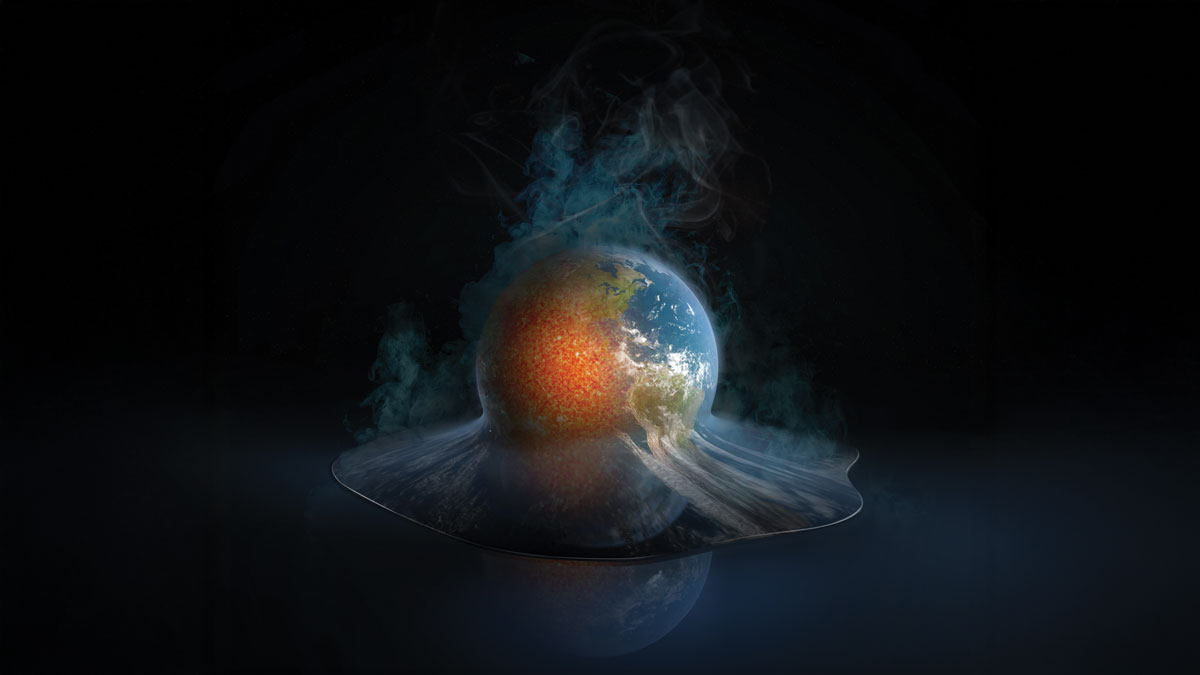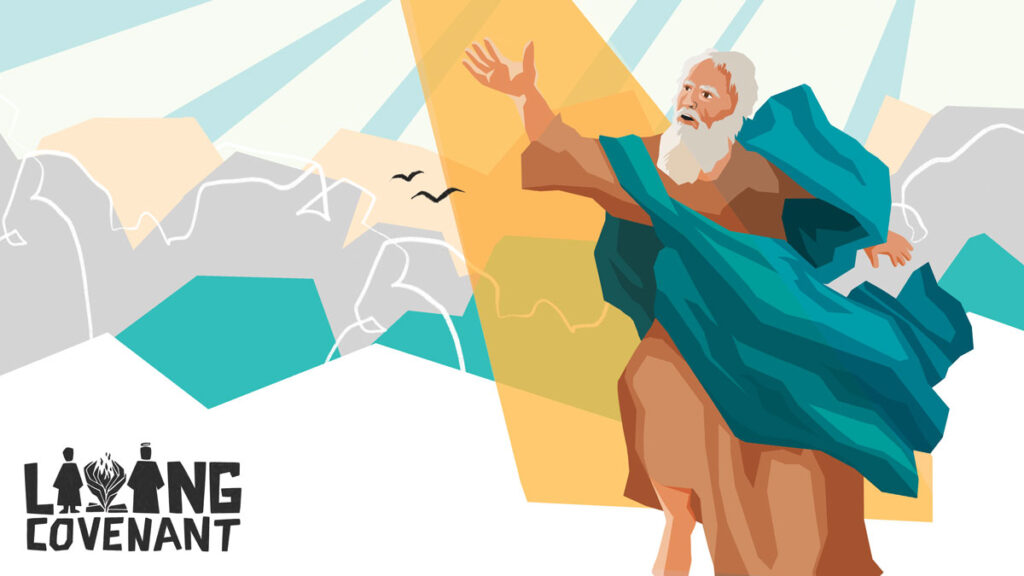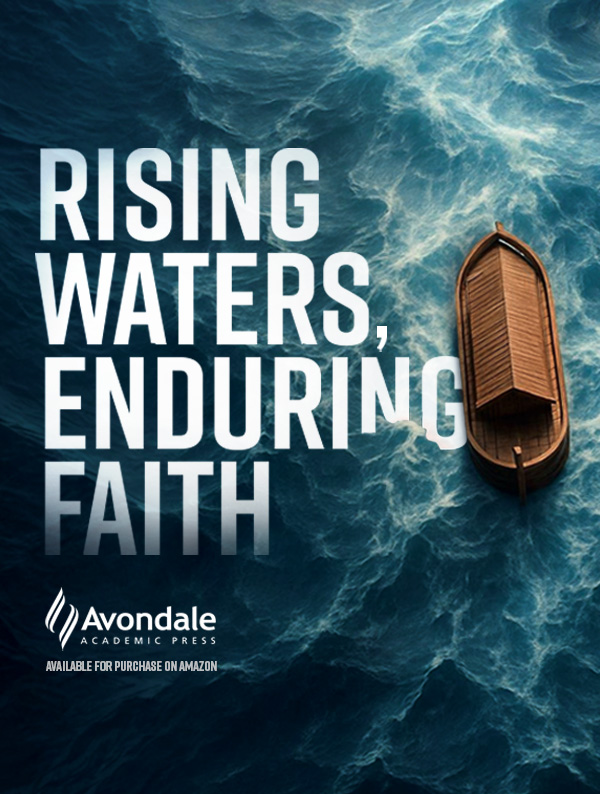God had been creating for six days. First the skies and seas, then the land and everything that grew or walked upon the land, including Adam and Eve. And God called it good. That was before the fall. The corruption of our beautiful planet began then, but the effects of human innovation, mostly since the Industrial Revolution, have had a severe impact.
Today, studies show that nine out of every 10 people on earth breathe polluted air1 and every minute the equivalent of a rubbish truck full of plastic is dumped in our oceans2. Since 1978, 185 million acres of the Amazon Rainforest have been cleared3 and space accidents have even produced nearly 6000 tonnes of space junk in our low Earth orbit4.
I’ve heard many people around me say that it isn’t something we should focus on, as we have the hope of Jesus’ soon return. That taking active steps towards protecting the planet doesn’t need to be high on our agenda, because God has a plan. We don’t have to be climate activists or even recycle, because the downfall of Earth will bring Jesus’ coming even closer.
Right? Well, not quite.
Genesis 1 tells us that “God said, ‘Let us make mankind in our image, in our likeness, so that they may rule over the fish in the sea and the birds in the sky, over the livestock and all the wild animals, and over all the creatures that move along the ground . . . Fill the earth and subdue it.” (vv26,27, italics added). “Rule over”, or as some translations say, “have dominion over”, comes from the Hebrew word radah. “Subdue” comes from the word kabash. When used in other contexts in the Bible, both radah and kabash often have cruel, oppressive connotations5. However, Genesis 1 was pre-sin, before the corruption of authoritative power, and should be interpreted differently.
Humanity was made in God’s image, created to reflect God’s character and represent Him to the rest of creation. Therefore, we are to exercise authority, to radah, in the way that God might, which was revealed to the world through Jesus. In John 14:9, Jesus says, “Anyone who has seen me has seen the Father.” Jesus came not to rule harshly or oppress, but to serve. We see this in the way He treated the poor—how He listened to everyone, including women and children. We see this when He got on His knees to wash the disciples’ feet. If this attitude of service is who God is, we can reflect His character by treating not only those around us but the natural environment with the same tender-loving care God extends to us.
Genesis 2 reveals a slightly different picture of Creation. In Genesis 1 we see the big picture, the all-powerful Creator and the majesty of His creation. Genesis 2 is a more intimate account, focusing more on the creation of humanity. Verse 15 says, “The Lord God took the man and put him in the Garden of Eden to work and take care of it” (italics added). The original Hebrew verbs from this verse, avad and shamar, mean to serve and guard, respectively6. These words, along with the interpretation of Genesis 1’s instructions, highlight the attitude we should display towards the natural world.
It’s described best with the word stewardship. A steward is not an owner, but someone who is a manager of someone else’s property or affairs. The twenty-first fundamental belief tells us that “We are God’s stewards, entrusted by Him with time and opportunities, abilities and possessions, and the blessing of the earth and its resources.” We must ask ourselves if we are being good stewards of the natural world—something that does not belong to us but has been entrusted to our care by God.
Two other important aspects established at the start of our world were that the seventh day was to be a day of rest and that every seed-bearing plant and tree with fruit was given as food (Genesis 2:3, 1:29). We as Adventists tend to focus on these two. We keep the Sabbath and proclaim the health message, which teaches a mostly plant-based diet. These are fundamental to our Adventist identity. But what happened to stewardship?
I recognise that taking care of the planet is not in the Ten Commandments, yet neither is eating a plant-based diet. Research shows that we live longer, healthier lives when we follow our Adventist health message, as shown in Loma Linda’s inclusion in the Blue Zones. Yet we seem to neglect the wider world—the animals, our oceans and forests. If we look to the Garden of Eden as a model for the ideal day of worship and diet, why should we neglect the ideal task: stewardship of the Earth?
It can be challenging to know how to be a steward in today’s day and age. Society has changed dramatically in recent centuries. Most people live in cities and we are surrounded by corporate powers who exploit the environment in every possible way. I’m not saying to move to the mountains and live off grid—and being environmentally friendly with your car or clothing brands is often a privilege of the wealthy. But being stewards of the environment can start very small, with things like being conscious of your water consumption, recycling, not supporting fast fashion and supporting people in government who make protecting the environment and championing clean energy solutions a priority.
How can we as Adventists take a stand on this issue? We share the messages of Jesus, the Sabbath and the health message—how about the message of caring for our natural world?
Generally, my generation experiences a fair amount of climate anxiety, defined as a fear or sense of worry about the planet’s environmental destruction. I see young people resigned to a future filled with all manner of challenges. Adventists stand in a unique position, with our belief in the second coming, able to offer hope to the hopeless. Yet that doesn’t mean our work on Earth is done.
It’s easy to look at the turmoil around us and say that Jesus is coming imminently, and I would love nothing more, except Jesus tells us in Matthew 24 that “about that day or hour no-one knows” (v36).
We shouldn’t try to predict when Jesus may return. We should live with the mindset that Jesus could come at any time while also remembering that it may not be in our lifetime. That means we need to do what we can to protect the world we are still living in and be like the faithful and wise servant put in charge of the household while the master was away—being faithful with what we have been entrusted, ready at any moment for the Master’s return (see Matthew 24:45-51).
The well-known, historical musical Hamilton includes the following words: “What is a legacy? It’s planting seeds in a garden you never get to see.” The choices we make today will shape the world of our children while we wait for Jesus’ coming. So let’s accept that while we do have that hope, the care and protection of the natural environment is something we should fight for—and that as Christians, it’s our responsibility to do so.
- Warren, M. “Nine in 10 People Around the World Breathe Polluted Air.” Science, American Association for the Advancement of Science, May 2, 2018. <science.org/content/article/nine-10-people-around-world-breathe-polluted-air>.
- “The Shocking Truth: How 8 Million Tons of Plastic Is Destroying Marine Life.” <marinebiodiversity.ca>.
- “Threats to the Amazon,” Amazon Conservation Association, <amazonconservation.org/the-challenge/threats/>.
- “Space Debris Bibliography,” NASA Headquarters Library, NASA. <nasa.gov/headquarters/library/find/bibliographies/space-debris/>.
- Mangililo, I. “An Assessment of the Dominion Mandate of Humans: Ecological Implications of Genesis 1:26–28,” Ecology, Environment and Conservation, vol 28, September Supplement, 2022, EM International, <academia.edu/94742979/An_Assessment_of_the_Dominion_Mandate_of_Humans_Ecological_Implications_of_Genesis_1_26_28>.
- Nggada, PA and Malawi, YI. “A contextual reading of avad and shamarin Genesis 2:15 within environmental protection and degradation,” Jos Journal of Religion and Philosophy, vol 3, no 2, 2023, <acjol.org/index.php/jjrp/article/view/4041>.
Ashley Jankiewicz is an assistant editor, Adventist Record.






